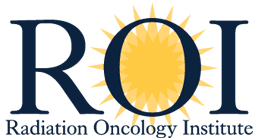Katie Lichter, MD, MPH
Illuminating the Impacts of Wildfires on Cancer Care

Katie Lichter, MD, MPH, of the University of California San Francisco is leading a multidisciplinary team in a pioneering investigation into the disruptive effects of wildfires on radiotherapy (RT) delivery and its consequent impact on cancer survival. “Wildfires have always been a part of our natural environment. However, as they become more frequent and destructive, it's crucial to understand how they impact patients undergoing cancer treatment, including radiotherapy. Our research is centered around the needs of these patients. We're working to uncover how wildfires specifically impact cancer care, so we can better protect the health and well-being of those undergoing treatment, even in the face of disasters,” says Dr. Lichter.
People with cancer are uniquely susceptible to the health risks posed by wildfires and other extreme weather events linked to climate change, such as floods and draughts. These patients cannot only contend with respiratory health effects from pollution, but also grapple with the complexities arising from cancer diagnosis and treatment. Their well-being hinges on frequent and timely access to medical facilities for treatment and survivorship care.
Dr. Lichter’s team, supported by ROI, is conducting the first-ever investigation of wildfire events’ impact on patients with cancer undergoing radiotherapy. Their research agenda encompasses:
- Conducting a survey of California-based radiation oncologists to assess their perceptions and preparedness for wildfire events.
- Collecting data on missed radiotherapy visits at collaborating institutions in Northern California between 2017 and 2021 to understand the association between recorded wildfire events and disruptions in RT treatment.
- Analyzing how exposure to wildfire disasters during radiotherapy treatment impacts outcomes, including overall survival and RT treatment completion time, for patients with lung, head and neck, and cervical cancer.
Unplanned interruptions in cancer care are known to impact patient outcomes for certain cancers, including lung, head and neck, and cervical cancer. Their team suspects that disruptions fueled by climate disasters may similarly impact patients. Furthermore, mounting evidence highlights that climate change disproportionately affects marginalized and low-income communities, as well as medically vulnerable populations.
Dr. Lichter’s research aims to identify patient groups disproportionately impacted by wildfire disasters during RT. These insights will guide the development of targeted interventions and policies aimed at enhancing cancer care both during and after climate-induced crises. With such information, efforts toward establishing best practices for sustainability, mitigation, emergency preparedness and resiliency can be established.
Publications
- Impacts of Wildfire Events on California Radiation Oncology Clinics and Patients was published October 22, 2023, in Advances in Radiation Oncology.
Presentations
- Impact of Declared Wildfire Disasters on Survival of Lung Cancer Patients Undergoing Radiation Treatment was presented at the 2023 ASCO Quality Care Symposium.














